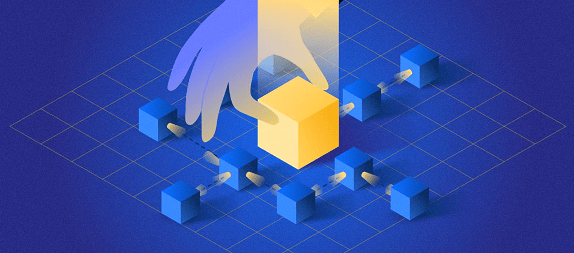Introduction
Blockchain technology is becoming increasingly relevant in addressing two fundamental issues in healthcare: data security and interoperability. As we continue to advance in healthcare technology, it is crucial to understand how blockchain can enhance our systems and processes.

Key Challenges in Healthcare Data Management
Healthcare organizations encounter significant challenges in securing sensitive patient data and ensuring that different systems can communicate effectively. Protecting patient information from breaches and enabling seamless data exchange across various platforms are critical to providing high-quality care.
Blockchain as a Solution
Blockchain provides a decentralized and secure way to manage data. It operates through a digital ledger system where transactions are recorded in blocks linked together through cryptographic means. This technology offers several advantages for managing healthcare data:
1. Enhancing Data Security
⦁ Immutability: Once data is recorded on the blockchain, it cannot be changed or deleted. This ensures that patient records remain accurate and tamper-proof.
⦁ Encryption: Data is encrypted before it is entered into the blockchain, ensuring that only authorized individuals have access to sensitive information.
⦁ Decentralization: By distributing data across multiple nodes, blockchain reduces the risks associated with centralized storage, making the system more resilient against attacks.
2. Improving Interoperability
⦁ Standardization: Blockchain allows for the creation of standardized data exchange protocols, facilitating effective communication between different healthcare systems.
⦁ Real-time Updates: The technology supports real-time updates to patient records, ensuring that healthcare providers have access to the most current information.
⦁ Transparency: All transactions are visible to network participants, fostering trust and consistency in the data.

Applications in Healthcare
Several projects are already demonstrating the potential of blockchain in healthcare:
⦁ Patient Records Management: Initiatives like MedRec are using blockchain to manage electronic health records (EHRs), enhancing patient control over their data and improving coordination among healthcare providers.
⦁ Drug Supply Chain: The MediLedger project uses blockchain to track the pharmaceutical supply chain, ensuring drug authenticity and safety.
⦁ Clinical Trials: Platforms such as Triall are leveraging blockchain to maintain the integrity and transparency of clinical trial data.

Conclusion
Blockchain technology offers significant potential to improve data security and interoperability in healthcare. By implementing blockchain solutions, we can address key challenges and enhance the management of healthcare data, leading to more secure and efficient systems.
This overview highlights the importance of blockchain in transforming healthcare data management. As we move forward, adopting and integrating this technology will be essential for addressing the evolving needs of the industry.







